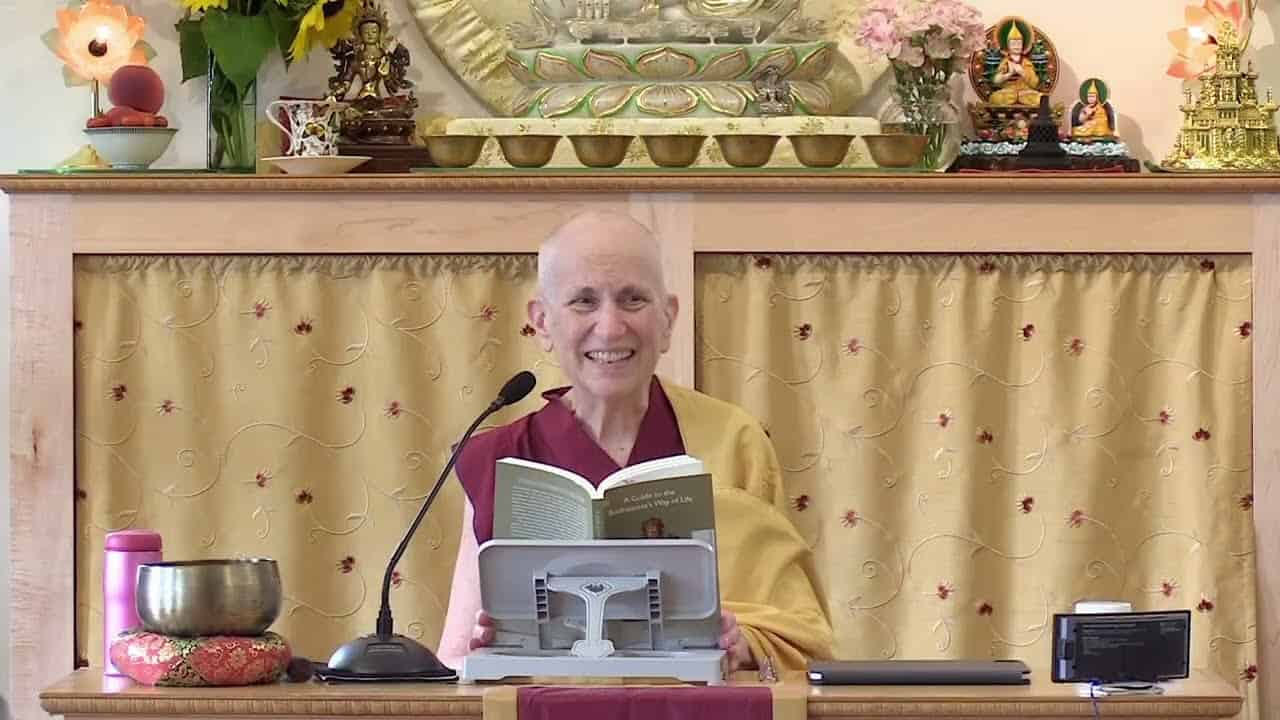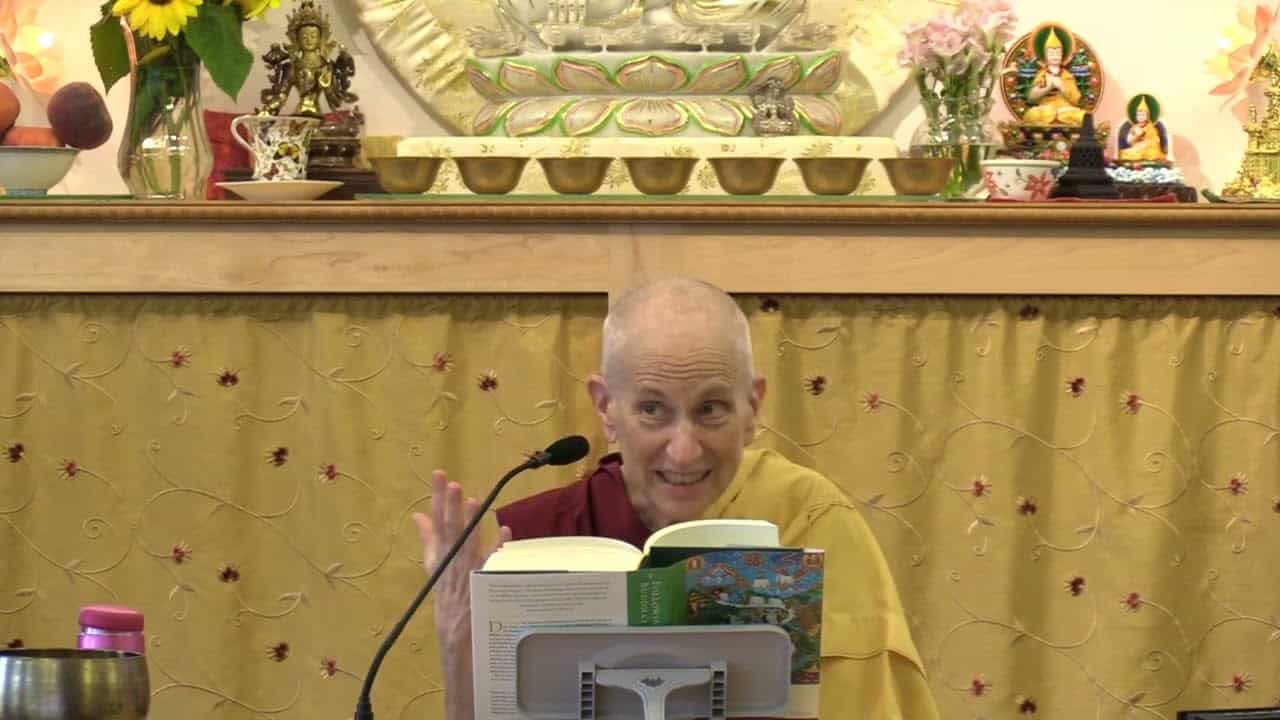The mind and its potential
83 Samsara, Nirvana, and Buddha Nature
Part of an ongoing series of teachings (retreat and Friday) based on the book Samsara, Nirvana, and Buddha Nature, the third volume in The Library of Wisdom and Compassion series by His Holiness the Dalai Lama and Venerable Thubten Chodron.
- Subtle differences between nirvana and liberation
- Unconditioned and conditioned
- Nature of aspiration and nature of the wisdom
- Description of bodhi
- Explanation of mind is devoid of the mind
- Nature truth body and wisdom truth body
- Ability to cognize objects
- Various factors obscuring the mind
- Physical aspects such as wall, distance
- Mental aspects such as cognitive faculties, disturbing emotions, subtle defilements
Samsara, Nirvana, and Buddha Nature 83: The Mind and Its Potential (download)
Contemplation points
- Liberation can have multiple meanings in the Sanskrit tradition: liberation itself and the path to liberation. Which is conditioned and which is not, and why? In the Pali tradition, the terms liberation and nirvana do not mean the same thing. Which is conditioned and which is not, and why?
- Bodhi is translated as awakening or enlightenment, the final goal of our spiritual practice. Describe the “bodhi” of a Buddha as opposed to a sravaka or a solitary realizer. Although the nature truth body is one nature with the wisdom truth body, which is the meaning of “bodhi” and why?
- The ability of the mind is to know all objects is a natural quality of the mind. What are the different types of obstructions and what does each prevent us from knowing?
- Consider “the effectiveness of a buddha’s activities depend not on the abilities of that buddha but on the receptivity of sentient beings.” What does this say about the buddhas? What does it say about what we need to do from our side as ordinary sentient beings to be receptive to the holy beings?
- Reviewing the various factors that obstruct the mind’s knowing phenomena, contemplate that all these can be eliminated. Rest in the awareness of the potential of the mind to become omniscient.
Venerable Thubten Chodron
Venerable Chodron emphasizes the practical application of Buddha’s teachings in our daily lives and is especially skilled at explaining them in ways easily understood and practiced by Westerners. She is well known for her warm, humorous, and lucid teachings. She was ordained as a Buddhist nun in 1977 by Kyabje Ling Rinpoche in Dharamsala, India, and in 1986 she received bhikshuni (full) ordination in Taiwan. Read her full bio.


